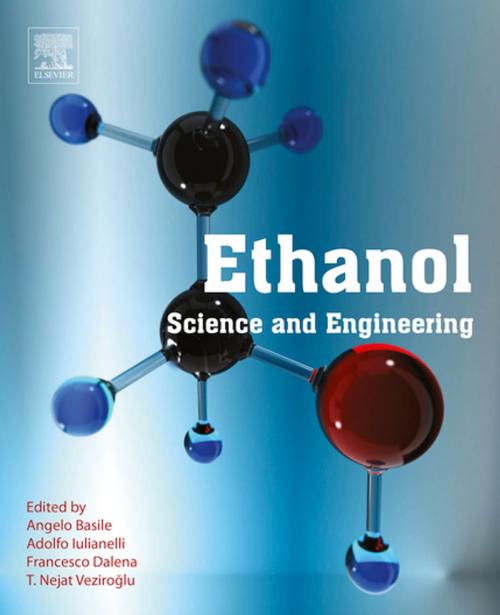Ethanol
Science and Engineering
Nonfiction, Science & Nature, Technology, Engineering, Chemical & Biochemical| Author: | ISBN: | 9780128115367 | |
| Publisher: | Elsevier Science | Publication: | August 28, 2018 |
| Imprint: | Elsevier | Language: | English |
| Author: | |
| ISBN: | 9780128115367 |
| Publisher: | Elsevier Science |
| Publication: | August 28, 2018 |
| Imprint: | Elsevier |
| Language: | English |
Ethanol: Science and Engineering reviews the most significant research findings in both ethanol production and utilization. The book's contents are divided into four parts, beginning with an explanation of the chemical reactions involved during the conversion of ethanol to more complex molecules. Other sections focus on various processes and their potential use, the modelling of various chemical processes, and finally, their economic and environmental impact. The book includes the most advanced production processes, new technologies, applications, and the economic role ethanol plays today. The book will be great for researchers and engineers in both academic and industry.
The idea of using ethanol as a fuel is one of the most promising options in the arena of alternative fuels because of it versatile use as an intermediate for producing hydrogen via reforming reactions, direct fuel cells feed and/or its production from biomass, which is also considered a sustainable feedstock.
- Reviews ethanol production methods from biomass
- Discusses the potential of ethanol as a viable future fuel
- Includes hydrogen production methods using ethanol in catalytic reforming processes
- Outlines the various technologies based on ethanol
- Includes ethanol powered fuel cells
Ethanol: Science and Engineering reviews the most significant research findings in both ethanol production and utilization. The book's contents are divided into four parts, beginning with an explanation of the chemical reactions involved during the conversion of ethanol to more complex molecules. Other sections focus on various processes and their potential use, the modelling of various chemical processes, and finally, their economic and environmental impact. The book includes the most advanced production processes, new technologies, applications, and the economic role ethanol plays today. The book will be great for researchers and engineers in both academic and industry.
The idea of using ethanol as a fuel is one of the most promising options in the arena of alternative fuels because of it versatile use as an intermediate for producing hydrogen via reforming reactions, direct fuel cells feed and/or its production from biomass, which is also considered a sustainable feedstock.
- Reviews ethanol production methods from biomass
- Discusses the potential of ethanol as a viable future fuel
- Includes hydrogen production methods using ethanol in catalytic reforming processes
- Outlines the various technologies based on ethanol
- Includes ethanol powered fuel cells















